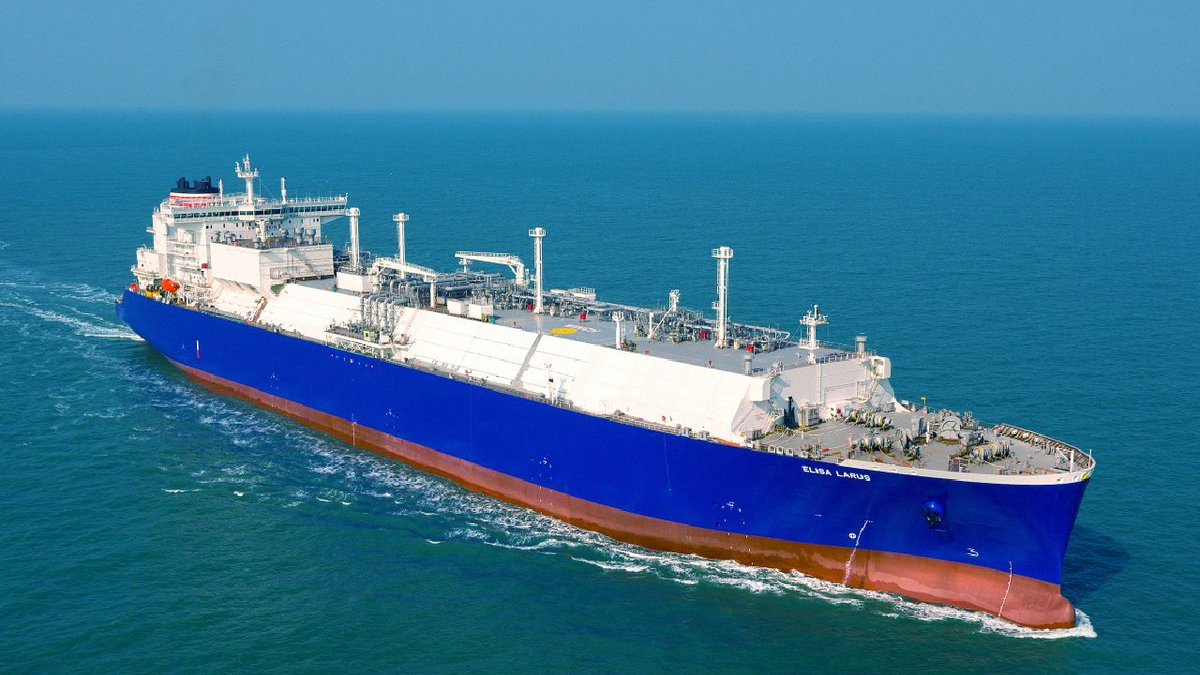France LNG Shipping is a joint venture of NYK Line and Geogas LNG, a subsidiary of France’s Geogas Group.
Elisa Larus has an overall length of 297 m, beam of 46.4 m, with a GTT Mark III Flex cargo containment system and a WinGD X-DF dual-fuel, slow-speed engine.
Built to Bureau Veritas (BV) class, Elisa Larus is the first LNG carrier to be awarded the French classification society’s cyber security notation. The BV cyber notations provide procedures and methodologies to address design and operational requirements for cyber security in compliance with IMO 2021 requirements and the new IACS recommendation 166.
“A cyber security notation from BV provides a pragmatic approach to cyber security – reflecting industry needs and cyber security best practice,” said Bureau Veritas Marine & Offshore director of advanced services Jean-Baptiste Gillet. “And with a newbuilding we are able to help ensure ‘cyber security by design’”, added Mr Gillet. BV cyber security notations are based on BV’s rule NR-659 and are the result of co-development with marine security experts.
BV is seeing a rapid growth in the number of ships applying for its ‘Cyber Managed’ notation.
The notation was co-developed by BV and external marine security experts as part of joint technical working groups organised by BV. It ensures compliance with the main existing cyber security standards and will enable shipowners to meet the requirements of IMO’s guidance to administrations that maritime cyber security risk should be reflected in ship security practice under the ISM Code by 1 January 2021.
Shipowners in Greece have been pioneers in applying the notation and now it is gaining traction with other shipowners and across the entire maritime ecosystem, including ship managers, charterers, insurers, and offshore operators.
BV expects that more than 100 ships will be operating under the Cyber Managed notation in 2020.
Cyber Managed focuses on ensuring cyber security is managed on board as per industry best practice for change management and traceability of IS/IT systems on board, emergency procedures and basic security protection measures.
Cyber Managed is based on a security risk assessment developed from an initial mapping of onboard systems that results in a practical set of requirements. The initial risk analysis and mapping exercise can be performed either during the newbuilding phase or at any time during the lifecycle of the vessel. As such, the notation is applicable to both new and existing ships.
Source: https://www.rivieramm.com/news-content-hub/new-lng-carrier-lsquocyber-secure-by-designrsquo-59456
